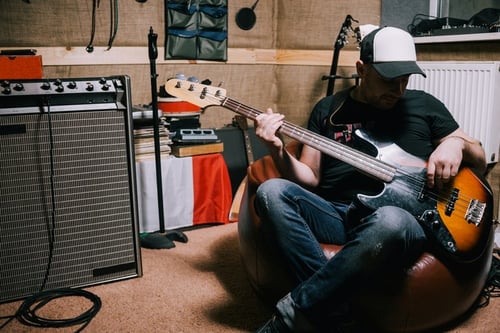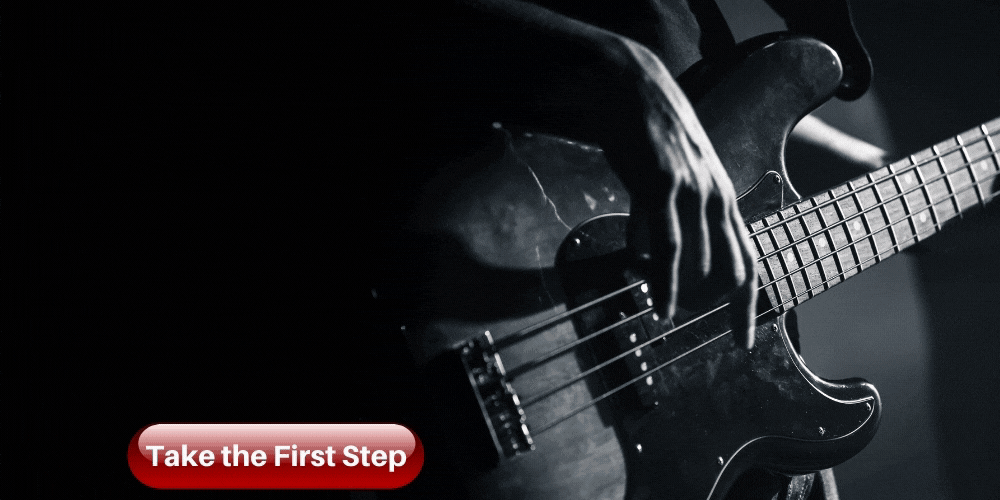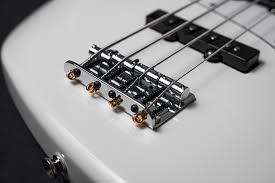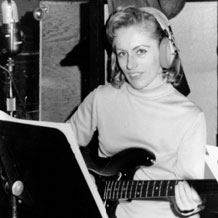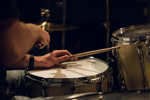The Best 11 Practicing Tips For Bass Guitar
Think of something you're really good at.
Maybe it's writing, or fixing cars, or cooking, or throwing a baseball. Is it muscle memory now? Would you consider yourself a master?
Now, think about how long it took you to get where you are now. Was it an easy process or was it stressful and time-consuming? What bumps did you hit along the way and what did you learn throughout the process?
Of course, some abilities come a little easier for some folks than others, but for the most part, to excel at something it undoubtedly takes a lot of practice.
And you know what? It is worth it.
But you're not here to talk about cooking or throwing a baseball. What is music to you?
It can be many things, but for a lot of people, it is a passion.
Unfortunately, even aspects of your life that you are passionate about can have tiresome moments that are stressful, exhausting, and downright frustrating. This can include Practicing the Bass.
Is it always fun? Not quite. However, there are steps you can take that will make practicing your bass guitar:
- Worthwhile
- Effective
- Measured (and most importantly...)
- Fun
Effective practice goes a long way. You may think you need the most expensive bass, but that's not true. Let's look at some of the best practice tips.
Table Of Contents
- Set Your Goals
- Be Organized
- Be Prepared
- Warm Up
- Time Management
- Focus Focus Focus
- Not All Practice is Created Equal
- Use A Metronome
- Enjoy The Process
- Practice With Others
- Review
- Capitalize On Your Practice by Attending a Music College
1. Set Your Goals
What exactly are you trying to accomplish?
Getting better at bass guitar, duh.
Of course, but how do you know if you have accomplished this goal?
Think back to science class (I'm sorry this brings up bad memories!). What was one of the most important rules in that class? To make sure what you are trying to accomplish is measurable.
The same idea applies while practicing your bass.
Is your goal to write a verse line? Maybe conquer a new scale? Finish that riff that has been giving you trouble?
Unless you break down and specify what exactly you're trying to do, you will never be getting the most out of your practice time. Give your practice a purpose.
So make sure to be concise, think about what you want to achieve, and use that as your measuring stick.
Important note: There is no fail! If you set a goal for your practice and have to finish before you accomplished what you set out to do, that is okay. It is not about perfection. It is about the process, and we promise you that failing a concise and reachable goal is better than idle and mindless practice.
2. Be Organized
Similar to setting goals, you want to be organized going into your practice.
Where do you practice? Is it incredibly clean or a little on the messy side? Is there a notebook around to jot down ideas or posters to inspire your creative juices?
Having an organized area and atmosphere can help you extraordinarily. Plus, you don't want to spend half of your practice time trying to find your bass strap, then your favorite stool, and where did you leave your tuner?
Take a deep breath, and make sure you are organized before diving into your practice. You will thank yourself before, during, and after.
Check out here why Organization can help Increase Productivity.
3. Be Prepared
Do you have everything you need in your practice space?
One thing you definitely don't want to do is lose your train of thought or creativity because you have to keep constantly getting up and grabbing things.
Here is a good, yet generalized checklist of things you may want to have before you fully shift your attention to practice:
- Bass Guitar
- Amplifier
- Strap
- Bass Stand
- Tuner
- Picks (if necessary)
- Music Stand with Sheet Music/Tabs
- Comfortable chair
- Paper for ideas and notes
- Water and/or tea
On the other hand, this is all assuming that you currently own these necessary tools.
If you need to buy a tuner, extra strings, or anything pertinent to a successful practice, make sure to do so before getting into your groove.
Owning all this equipment obviously depends on your financial situation, but it is still something that needs to be addressed. Even though visualizing your practice can help, it is difficult to practice the bass guitar without, you know, a bass guitar.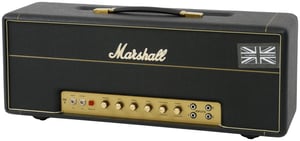
Check out some fun bass gadgets that may not be absolutely necessary for practice, but sure are a lot of fun!
4. Warm-Up
You know what happens when a strength trainer or an athlete doesn't stretch before lifting heavy weights or an intense game? They get injured.
While the stakes may not be as high for you as a bassist, that doesn't mean that stretching and warming up isn't worthwhile. It will certainly improve your ability and overall practice.
Give your wrist some good stretching and make sure your fingers, hand, wrist, and arm are relaxed and limber. After stretching, play through some scales or songs that you are familiar with and help get your muscle memory going.
Depending on how long you have to practice and the intensity of your practice, a solid 5-10 minute warm-up would be beneficial.
Click here for a great video on stretches you can do before practicing bass guitar.
Important note: warming up also applies to your instrument. Make sure the neck does not need to be adjusted, the strings are not too worn out, and that it is in tune.
5. Time Management
Okay, so we have set our goals and we are prepared to practice. Great!
Now how do we go about doing that? Time Management.
How Often Should You Practice Bass Guitar?
A good way of making sure you are managing your time well is by breaking down exactly how long you plan on practicing and what you would like to do/accomplish during that time. For instance,
- Time allotted for warming up/scales
- Goal(s) for this specific practice
- The time that will be spent on each goal
- If extra time, how will it be spent
- Time allotted for cleaning up and putting everything away
Maybe reserving time for putting your things away is a little excessive, but you get the idea, right?
Plan it all out and stay on course!
6. Focus, Focus, Focus
Is practicing bass guitar the most important thing in your life? Maybe if you're young without too many responsibilities or if you're attending a credible music college.
However, it is also likely that you have a job or career on your mind, maybe a family to take care of, and dinner to start soon.
Are these all important aspects of life that should go hand in hand and sometimes take precedence over practicing bass? Absolutely.
When you begin your warm-up exercises and decide what your practice will entail, you have to shut the door (mentally and physically) to the outside world.
The more you focus on your craft while practicing the better results you will receive.
Important note: Remember that while shutting out the world is beneficial to practicing bass efficiently, other aspects of life do matter and should take necessity at times. When it comes to balancing art and life, consider the words of the great Stephen King, "It starts with this: put your desk in the corner, and every time you sit down there to write, remind yourself why it isn't in the middle of the room. Life isn't a support system for art. It's the other way around."
7. Not All Practice is Created Equal
This goes along with the idea of focus, but remember that just sitting down to practice is not quite the same as efficiently practicing.
In terms of preparedness, if you follow the previous steps leading up to this one, you will have a much better chance of an effective, and worthwhile practice.
Likewise, it is critical to understand how much time you have versus what you would like to accomplish.
If you have ten minutes, maybe going over some scales would be beneficial.
If you have 45 minutes, that could drastically expand what all you get to cover. However, a longer practice is not always a more effective practice.
Aimless fingers and an idle mind do not bear great results.
8. Use a Metronome

Do you think you have great timing? Maybe you do, maybe you don't.
Lucky for you, there is a sure fire way to find out! Use a metronome.
Metronomes work using beats per minute (BPM). Therefore, the lower number of BPM you set your metronome, the fewer beats per minute and the slower your tempo will be.
Using a metronome is a simple way to do the following:
- Solve timing issues
- Help you discover how many beats per minutes your song is
- Fix speed corrections
- Develop continuity with your playing
There are several apps you can download for free right on your phone, or just search "Metronome" in Google.
9. Practice with Others
While practicing bass with a metronome will help keep you concise, practicing with others can really help your fluidity as a bass player. Plus, it's really fun!
While effectively jamming, playing, and practicing with other musicians, you will inevitably pick up on other rhythms, playing styles, and ideas that could significantly impact your own playing.
Besides, other musicians will be watching and playing with you, and their feedback can (potentially) be helpful. For instance, the way your fingers move across the fretboard or if you hold a note too long or too short.
These types of habits that don't cross your mind may be strikingly evident to another musician. On top of that, positive reinforcement in the form of compliments on your playing is also a nice reward for all your hard work.
So, meet up with some other musicians and have a good time (just don't let the guitarist steal the limelight!).
Tip: Need help finding other musicians in your area? Check out our blog about how to find your next bandmates here.

10. Enjoy the Process
So, it is likely that you hate playing the bass guitar and it was forced upon you by your parents, and you wish you could be spending your time more productively by solving math equations or something like that, right?
Wait...you like playing the bass guitar? Oh, then act like it.
Practice is meant to be beneficial, worthwhile, and occasionally tedious; but that does not mean that it should not be fun.
We highly recommend enjoying the process of practice and feeling rewarded when you finish.
No doubt there will be times where you feel down and exhausted. And that is natural and okay.
In these moments, it is helpful to think of the following questions:
- What inspired you to pick up the bass?
- Who were your biggest influences
- Where do you want to be 5 years from now? 10 years from now? How about next year?
Keeping these in mind will give you direction and peace of mind. If that doesn't work, load up a YouTube video of your favorite musician's performance or an interview.
Learning some of the great bass guitar songs can help spark inspiration. Check out our article detailing 16 Bass TABS you should learn.
While it isn't always easy, staying passionate and inspired is a great way to make practice as effective as possible.
11. Review (Callback to Step 1 "Set Your Goals")
Life is just one big cycle, and this list is no exception.
Once you finish your effective practice, it is time to review and reflect.
Go back and look over the goals you set for yourself. Did you achieve them? Great. If not, why? And what can you do next time to help give you that extra push?
It is always important to remember that the process is just as rewarding and critical as the results. If you practice effectively using all of these steps, and you still did not reach the goal you set, that is okay.
As long as you have direction, goals, and focus, there are no failures. Don't get paralyzed. Just remember, you are still light years ahead of aimless practicing.
Capitalize On Your Practice by Attending a Music College
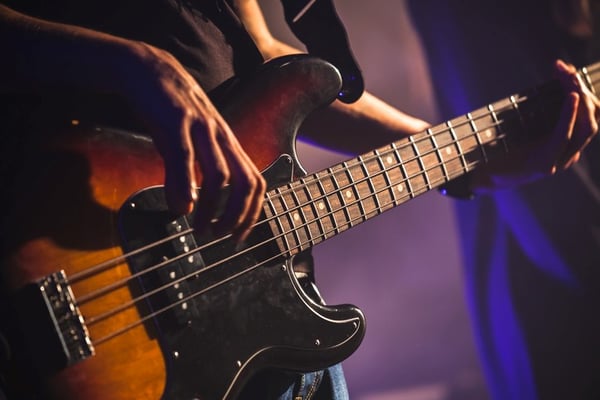
If you have been consistently practicing effectively and are at least an intermediate musician, you should strongly consider attending a Music School.
The Atlanta Institute of Music and Media is a fantastic music college that hires industry-leading professionals to instruct their courses and you will record in state-of-the-art studios.
Also, you learn from both sides of the studio at AIMM. That means you get to choose a bass focus along with learning the technical aspects of sound engineering and recording. In our DIY music age right now, recording skills are invaluable.
Don't miss a chance to push your skills to the next level and edge out the competition.
To learn more about the Atlanta Institute of Music and Media's Bass Program and put your Bass Guitar Practice to use, click the link below and start maximizing your potential today.

